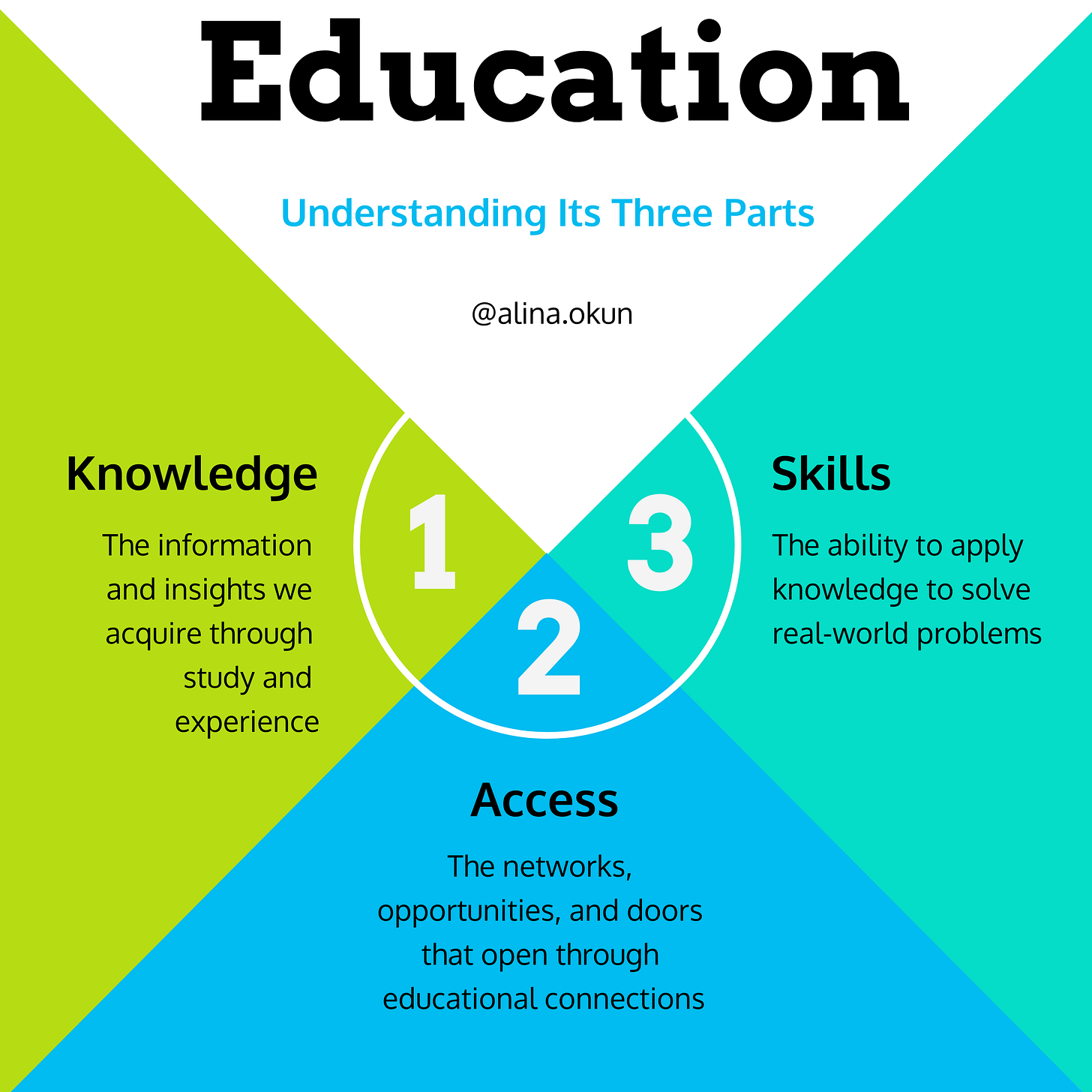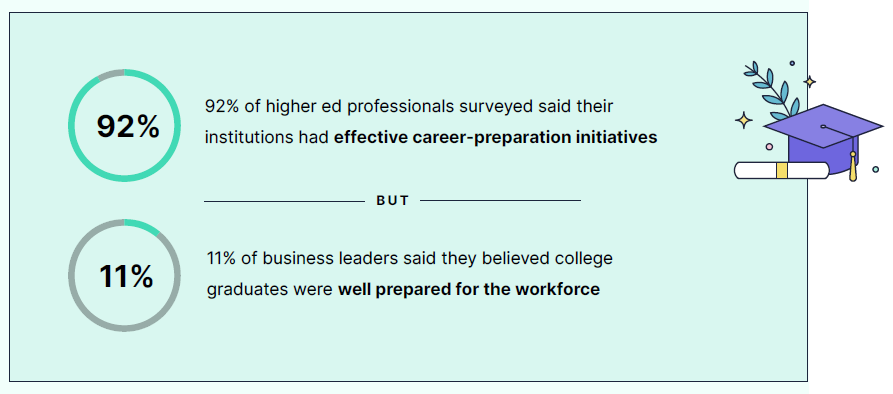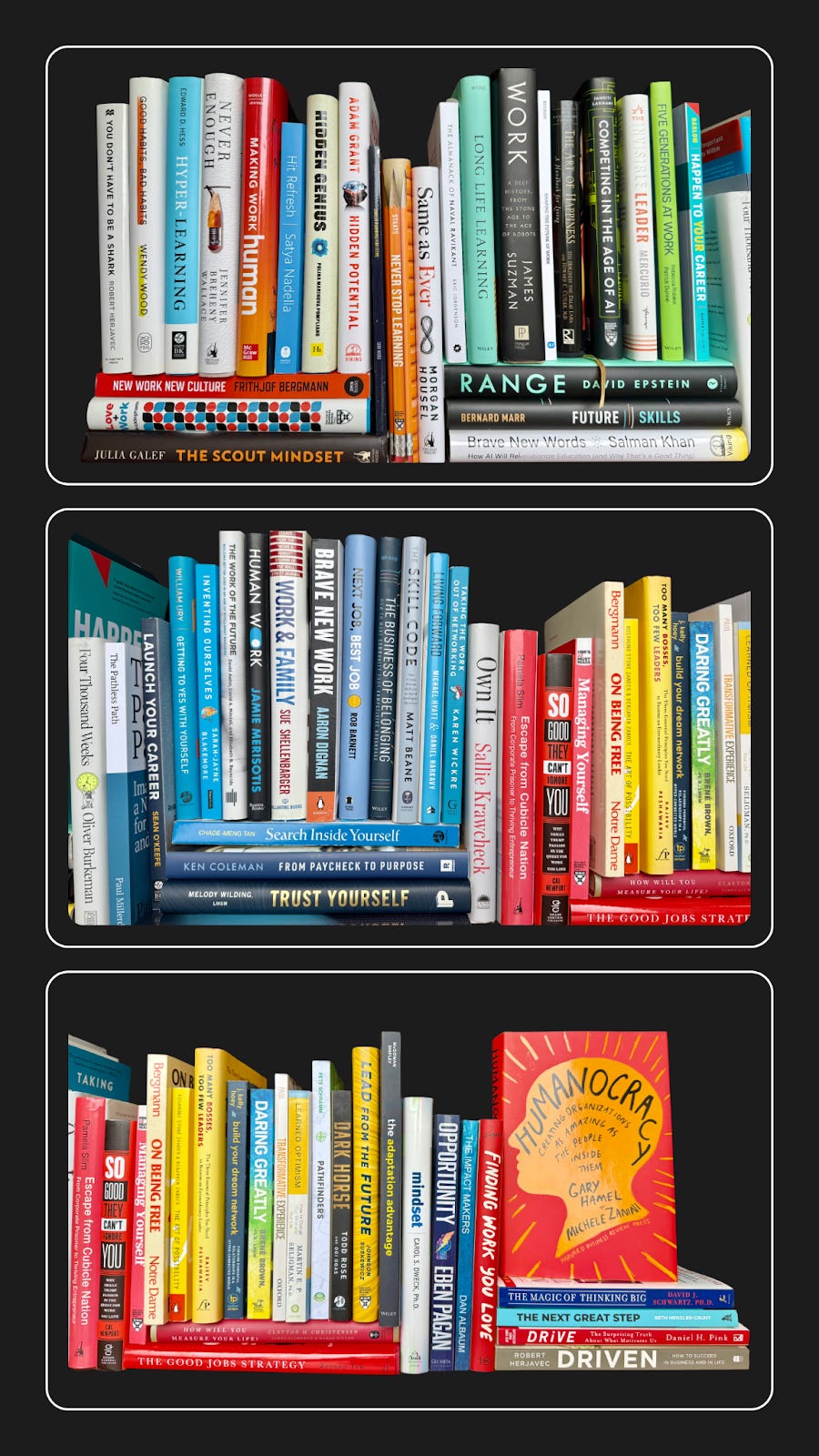Something interesting has been happening with this newsletter.
Over the past several months, I've noticed that most of my new subscribers are educators, PhD.s, and Ed.D.s. These individuals are at the forefront of preparing students for their post-education futures.
This realization has pushed me to rethink how FutureSkill can create more value.
To understand where we need to go, I first want to share how I think about education. I see it as consisting of three parts: knowledge, access, and skills. Each is transforming in ways that challenge traditional education.
Knowledge used to be the primary reason people went to college. Except today, knowledge is free. Anyone with internet access can watch lectures from top schools or take courses on Khan Academy. From that perspective, we live in an incredible time.
Access is why people still obsess over getting into prestigious schools. The textbooks and lectures might be similar across institutions, but the networks aren't. Parents go to extremes and pay exorbitant amounts of money for this access. The irony is that you can now build powerful networks in many other ways that don't cost anywhere close to college tuition.
The third part is Skills, and this is where our education system faces its biggest challenge.
When I was studying for the CPA exam in my senior year of college, the instructor said something that I still remember 25 years later: "Studying for the CPA exam does not teach you how to be an accountant." He was discussing tax law at the time and making the point that you can't learn to prepare tax returns just by studying; you can only learn by doing.
This gap between knowledge and practical skills has always existed, but today it's more critical than ever. When knowledge becomes outdated quickly, and AI knows more than any human could possibly know, what you can do matters more than what you know.
Organizations understand this paradigm and are moving towards skills-based hiring. In the past, an entry-level new hire wasn't expected to know how to do anything. They were hired for their potential, which is why their grades and the school they attended mattered.
Today, nobody wants to train new hires. Job descriptions for entry-level positions already require 2+ years of experience. The expectation is that you should be able to provide value on day one.
As a result, we get this massive disconnect:
Over the past several months, educators have shared their perspectives with me, highlighting the complexity of this challenge:
"There is intensive dialogue amongst teachers on how exactly are they to prepare students for a future no one can really foresee."
"As my focus is Education, I totally concur it's 'time to reimagine curricula.' Unfortunately, those systems move too slowly and right now the 'heritage' workers, for the most part, are either not that interested in moving it faster, or are so totally overwhelmed they are frozen to act."
"For the majority of students, not only does education continue to focus on teaching for specific jobs, but it also focuses on memorizing disjoined curriculum with no overview of understanding."
"I'm learning a lot from your posts and integrating ideas and data into my own thinking and work, so please keep writing them."
These insights have pushed me to reevaluate how FutureSkill can better bridge the gap between what employers want and what colleges and universities provide today.
Every week, I read reports from various organizations that spend significant resources exploring topics relating to the future of work. Recently, I published findings from 50 of these reports: What 50 Research Reports Reveal About the Future of Work
Since then, my database has continued to grow.
Most of the books I read focus on work. This selection of 70 books from my bookshelf represents my ongoing research. I've read the majority of them and plan to read the newer ones I've purchased recently.
Drawing on insights from all these sources, I want to focus FutureSkill on five core themes in 2025:
New Ways of Working
The Future of Expertise
Human + AI Work Model
Bridging Education and Work
The Changing Nature of Success
Each week, I plan to develop strategies addressing specific challenges. This is just a sample:
Strategy for Helping Students Build Skills-Based Portfolios
Strategy for Designing Experiential Learning Opportunities
Strategy for Preparing Students for Nonlinear Careers
Strategy for Mastering AI-Augmented Work
Strategy for Integrating Micro-Credentials
Today, I'm sharing the first edition, Strategy for Work-Based Learning.
This is all a work in progress, so please share your feedback. Are there topics that you would like me to cover? What are some of your favorite books (can be your own) that are relevant to my research?
Strategy for Work-Based Learning
1. THE INSIGHT:
The gap between education and work is widening. While colleges focus on teaching theory, employers want people who can do the work. They care less about degrees and more about whether someone can adapt and solve real problems.
The World Economic Forum recently published a striking statistic: 44% of current employee skills will be disrupted in the next five years. Think about that for a moment. Almost half of what employees know how to do today will be irrelevant in five years.
This is why work-based learning isn't just another educational trend. It's becoming essential.
2. THE STRATEGY:
To effectively integrate work-based learning into your programs, consider the following steps:
Build partnerships with local businesses. Not just the typical career fairs and guest speakers, but real collaborations where businesses help shape how students learn. When businesses are involved in designing the learning experience, they're more likely to hire the students later.
Create real work experiences. Theory is important, but students need to apply what they learn to actual problems. This means giving students projects that matter to the business and have meaningful outcomes.
Focus on the student experience. The best work-based programs place a considerable amount of emphasis on the student's journeys. How do they get feedback? How do they learn from mistakes? How do they build confidence? These questions matter more than checking boxes on a curriculum plan.
Keep communication open. Students should hear regularly from both their teachers and workplace mentors. Regular conversations help students understand what they're doing well and where they need to improve.
3. THE IMPACT:
Well-designed work-based learning programs consistently show three main benefits:
Students become more employable. They build relationships with professionals while learning the skills employers actually need. Many students end up getting job offers from their work placements because they've already proven what they can do.
Students learn to adapt. Working on real challenges teaches them how to solve problems in ways that classroom learning can't match. They also get comfortable with uncertainty, which matters more every year as the workplace keeps changing.
Career paths become clearer. Nothing helps students understand a career like experiencing it firsthand. They make better choices about their future because they've seen what different jobs and industries are really like.
Work-based learning isn't just about landing a first job. It's about preparing students for a future where they'll need to keep learning and adapting throughout their careers.
4. ADDITIONAL READINGS:
Boston Consulting Group. How Work Preferences Are Shifting in the Age of GenAI. 2024
Business-Higher Education Forum. Forging Partnerships to Align Education and Industry for the Workforce of Tomorrow. 2024.
Deloitte Insights. Global Human Capital Trends. 2024.
Mercer Global Talent Trends. Unlocking Human Potential in a Machine-Augmented World. 2024.
World Economic Forum. Future of Jobs Report, 2023.







I keep focusing, as an exercise on more innovation for Education's sake not only on bridging theory and practice, but also into how to integrate (overlapping) demands that born everyday (or by the hour) and the corresponding enablement required by the ever changing reality.
Alina, if you come up with a good insight you can call me at any time (lol).